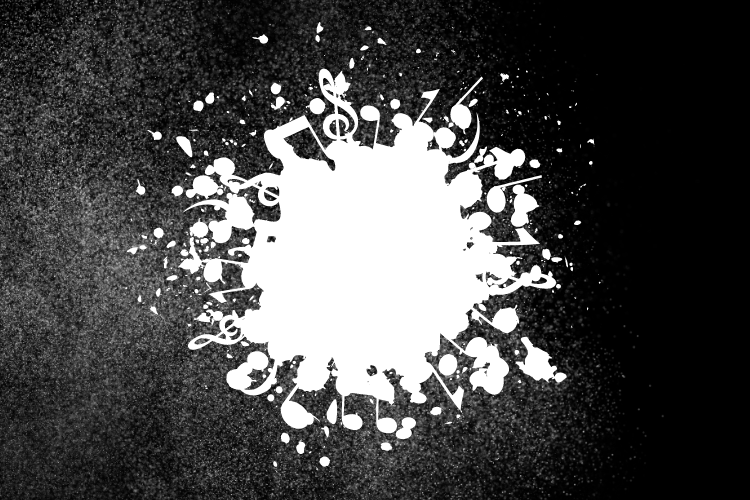
Three Yiddish Songs to Start a Revolution
Jewish and revolutionary. For most of my life, this sounded like a contradiction to me. Growing up in a small, politically conservative community in Vienna, Austria, my bourgeois, assimilated Jewish family felt far removed from the revolutionary history of European Jewry. When I became a social justice activist in college, I initially did not see any connection between my activism and my Jewish identity. Then I discovered Yiddish workers’ protest and resistance songs from the early 20th century particularly from the Bund, an Eastern European Jewish labor movement. This music gave me access to a whole world of radical Jewish history and culture, inspiring me to continue this legacy in both art and activism.
I first learned to sing them in my bedroom— accompanying myself with guitar—and then started performing once in a while at political protests. My first full concert of Yiddish revolutionary songs was in a squatted house in Amsterdam in 2017, which started off my trajectory as a performing artist. What continues to energize me most about these songs is their ability to imagine a more just and free future, an ability that is increasingly under attack with the rise of nationalist movements and fascist regimes.
Here are three of my favorite Yiddish resistance songs. May they spark your imagination and sustain you as we create a more just world.

Arbetlozer marsh, literally “march of the unemployed,” is my all-time favorite revolutionary song. Written by none other than Kraków Yiddish songwriter Mordechai Gebirtig (1977-1942), it tells a story of poverty and oppression. But instead of dwelling on their suffering, the unemployed march proudly through the streets, “vi di gvirim pust un pas”/“like the rich, doing nothing”—or as Yiddish singer and songwriter Daniel Kahn freely puts it in his English adaptation, “idle as a CEO.” His version with German klezmer band Daniel Kahn & the Painted Bird was one of the first Yiddish songs I ever heard and became the starting point for my journey into revolutionary Yiddishland. Since then, I sing it at nearly every concert, often including also my German adaptation inspired by Kahn’s English version.
I particularly love the last verse, which dreams of a “nayem frayen land”/“new, free land,” where no one is unemployed anymore. This capability to imagine a better world is something that I admire from many songs that sprung from the Yiddish workers’ movement in the early 20th century.

Ale vayber megn shtimen (“All women can vote“) is a theater song written by Russian-American composer Rubin Doctor (1882-1940) in 1920 about the ratification of the 19th amendment, which granted American women the right to vote. While this sounds like a pro-women’s rights song at first, it was actually meant as a sarcastic song, making fun of women’s newly achieved rights as something that can be used to shut up a nagging wife. However, when I first discovered the song on a compilation of recordings of women singing in Yiddish theater, I heard a version by Yiddish actress Clara Gold from 1921. To my ears, it sounded like she had adapted the song slightly to actually be empowering to women. Instead of singing “megn shtimen”/”can vote”, she chose to sing “mizn shtimen”/ “must vote”.
Inspired by Gold’s feminist reappropriation, I decided to add lines in Yiddish that were not audible from the recordings and added an English verse reflecting on women’s suffrage 100 years later and the limits of liberal feminism. I particularly love the “Yinglish” of the song, lines like “ale vayber mizn shtimen, bay yeder election vos vet kimen”/”all women must vote, with each election that will come.”

Gemutikt fun kleynikn nistokhn, far undzer nayem, frayen dor.
Hirsh Glick
Empowered by the small victories, for our new, free generation.
Shtil, di nakht is oysgeshternt, “Quiet, the night is full of stars,” is a political song written by partisan and poet of the Vilna ghetto Hirsh Glik (1922-1944) in 1942. It tells the story of the young partisan Vitka Kempner (1920-2012) and her successful act of sabotage in bombing a German train shipping weapons when she was only 21 years old. In contrast to Glik, who was murdered by the Nazis, Kempner fled to Palestine and survived. The last verses are particularly touching to me as a social justice activist and a third-generation Holocaust survivor: “Gemutikt fun kleynikn nistokhn, far undzer nayem, frayen dor”/“Empowered by the small victories, for our new, free generation.”
On Tuesday, March 28, 7:45 pm ET| 6:45 pm CT | 4:45 pm PT, join Lilith and the Workers Circle College Network for a virtual concert, “Yiddish Resistance Songs with Isabel Frey,” to demand democracy and fight the rising tide of fascism in the United States. Music and culture can help power our fight. Register here.
Isabel Frey is a Yiddish singer and a PhD candidate in ethnomusicology at the University of Music and Performing Arts Vienna. As a performer, she specializes in Yiddish revolutionary songs and continuing the tradition of Jewish social justice activism both on stages and at political protests.



